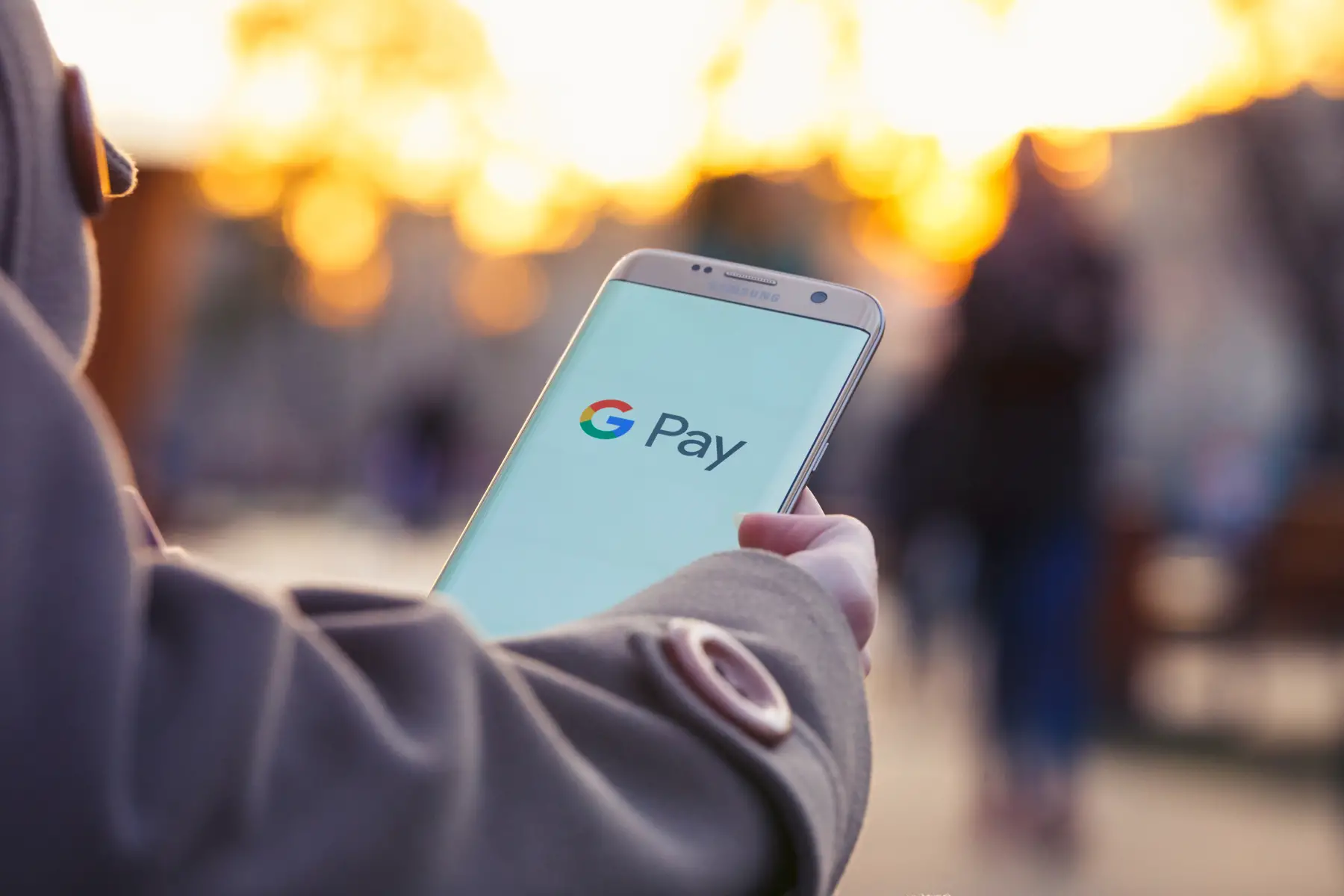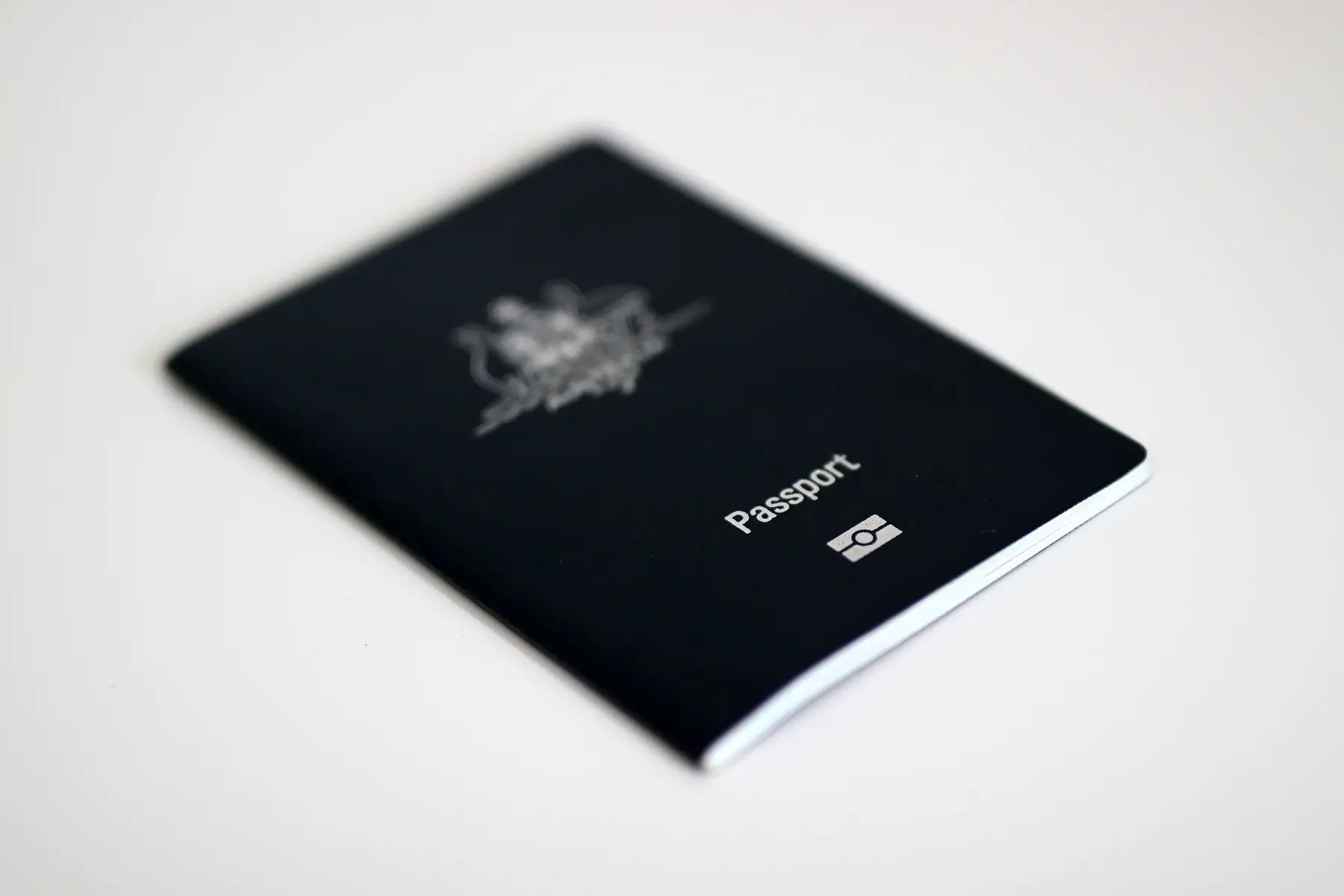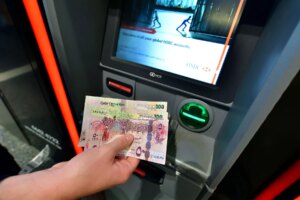This helpful guide offers an overview of mobile banking in Qatar. Furthermore, it outlines the major banking apps, digital wallets, and features available, and how to protect yourself against fraud. The guide covers the following sections:
- Overview of mobile banking in Qatar
- Mobile financial services in Qatar
- Features of mobile banking in Qatar
- Understanding mobile payments in Qatar
- How to open a mobile bank account in Qatar
- Mobile banking fees in Qatar
- Mobile banking security in Qatar
- Fraud cases regarding mobile banking in Qatar
- Useful resources
Overview of mobile banking in Qatar
Expats looking to access mobile banking in Qatar may find that services are less developed than in their home countries. However, with development momentum from the Qatar Central Bank (QCB) in the wake of the country’s economic blockade by its neighbors, the country’s financial institutions are fast adopting mobile banking services to cater to a young and connected population. As such, the majority of banking services are available via mobile apps, although some limitations remain.

New products and services
Mobile banking in Qatar has benefited from a new push as stability has returned to the banking industry. For instance, in recent years, banks have revised their products and services for an increasingly mobile customer base. This is largely due to the country’s high smartphone penetration rate (75%) and the growing e-commerce retail market. As a result, residents in Qatar can now access mobile banking apps for a variety of services; including paying bills, depositing funds, and sending money overseas.
Beyond traditional banking entities, financial products such as Google Pay and Apple Pay have found favor with Qatari residents. As a consequence, competition is increasing which has spurred development, thus boosting efficiency and improving financial inclusion.
Revised regulations
In 2019, the QCB Governor, Sheikh Abdulla Bin Saud Al-Thani, announced the regulator’s intention to further prioritize the sector’s development. This was to enhance mobile banking services for retail consumers, entrepreneurs, and businesses. Additionally, as part of its Second Strategic Plan, the QCB is readying a financial technology (FinTech) strategy in cooperation with financial institutions and financial technology companies.

Preparations are underway to launch digital banks that provide banking services through mobile applications and others. Meanwhile, regulations for the supervision and oversight of mobile banking in Qatar are under revision. In fact, as of December 2019, there are no mobile-only banks in Qatar.
Mobile financial services in Qatar
The major commercial and Islamic retail banks all offer mobile banking services in Qatar for current and business accounts alike. They include:
- Ahli Bank
- Commercial Bank of Qatar (CBQ)
- Doha Bank
- HSBC Qatar
- Qatar Islamic Bank
- Qatar National Bank
In addition, you can also access smartphone payment systems, such as Apple Pay and Google Pay.

Finally, utility providers and money transfer companies have their own mobile wallets, such as:
Features of mobile banking in Qatar
Mobile banking apps in Qatar allow customers to conduct a range of transactions. Whether accessing the app via a smartphone or tablet, you can usually make use of the following standard features:
- Transfer money to accounts within the same bank
- Transfer money to other banks in Qatar
- Make international money transfers
- Pay bills to utility providers such as Ooredoo and Kahramaa
- Block or report a lost or stolen payment card
- Request a new payment card
- Access statements for various bank accounts
- Access loan and repayment schedules
- Contact banking agents
Security-friendly access
In addition, banks such as Doha Bank have enabled security-friendly biometric access to their mobile services. They also allow consumers to access their social media pages via their apps. Others, such as CBQ, have remote-disposal check services for companies. Customers can scan or photograph checks and upload them through the bank’s mobile app.
Limitations to mobile banking
However, as a recent technology, mobile banking in Qatar comes with its limitations. Not all bank apps will allow you to take out loans, for example; or if they do, you may need to visit the branch to complete your paperwork. It is advisable to compare different banks’ mobile services before settling on a particular provider.
Understanding mobile payments in Qatar
Alongside their counterparts in Bahrain and the UAE, Qatari residents are among the world’s leading adopters of digital technologies. Like other Gulf nations, Qatar features a youthful demographic profile with high levels of disposable income; factors that drive the growth of mobile payments via online banking and e-commerce. Fitch Solutions estimates that the e-commerce market in Qatar was worth close to US$1.5 billion in 2019. Furthermore, Qatar leads the Arab world in terms of engagement with mobile services and applications, GSMA Intelligence reports.
Types of mobile payments
Consequently, banks and other businesses have had to adapt to this new reality. While cash and credit cards remain the dominant forms of payment, both online and mobile payments are growing annually. Mobile payments can include the following:
- Bill payments from mobile devices;
- Payments between individuals via smartphones;
- Contactless payments made from a mobile device instead of a credit or debit card
You can make contactless payments by using Near Field Communication (NFC) or QR matrix bar code technology; this works by waving your device over a scanner or payment point.
Additionally, there is a range of different apps that facilitate mobile payments in Qatar, including:
- Mobile wallets such as Ooredoo’s Mobile Money Payroll and Commercial Bank’s CB Wallet
- Technology apps such as Apple Pay and Google Pay
How to open a mobile bank account in Qatar
As an expat, you will find it easy to open an account via mobile banking in Qatar; however, only a few banks provide this service. These include:
- Commercial Bank of Qatar
- Doha Bank
- QNB
Required documentation
However, in line with central bank regulations, you will need to provide a range of documents to the bank. This includes:
- Photocopies of your passport;
- Photocopies of your residence permit;
- Two photographs;
- No-objection letter from your employer declaring your salary.

Furthermore, as an expat, you will need to provide those documents within 90 days of your arrival in Qatar.
Mobile banking fees in Qatar
In general, there are no fees when it comes to mobile banking in Qatar. Services that incur a fee when requested at a branch, such as ordering a new checkbook, are usually free online. However, customers who transfer money either domestically or overseas will have to pay a charge when using mobile banking.
Such fees range from QAR5-QAR25 per local transfer and QAR15 and upwards for international money transfers. Fees vary from bank to bank; therefore it is worth checking with your provider when making transfers via mobile banking in Qatar.
Mobile banking security in Qatar
The digitalization of banking services has enabled a corresponding increase in fraudulent transactions. As a result, Qatari regulators have enforced several security compliance features that customers must use when accessing mobile banking.

These include industry-standard encryption techniques and hardware such as passwords, SMS notification services, and security keys. Some banks now offer biometric technology even on their mobile apps, such as fingerprint scanning, so customers may easily access their accounts.
Registering to get a PIN
Typically, mobile banking customers in Qatar need to register via existing internet banking services. Upon registration, customers will need to create a unique personal identification number or PIN. They must use this when accessing accounts via their Qatari mobile phone. They will then receive SMS messages about balance-altering transactions on a corresponding registered mobile phone number. This is to ensure customers are aware of every transaction. Furthermore, all transactions are viewable online and at any time.
Fraud cases regarding mobile banking in Qatar
The total number of reported fraud cases conducted via mobile banking in Qatar is not available. Despite this, Qatar’s Economic and Cyber Crimes Combating Department has arrested 100% of all suspects since 2011; this includes both credit card and ATM fraud. Nevertheless, customers who access mobile banking must remain vigilant.
Common types of bank fraud
The most common types of fraud techniques related to mobile banking include anonymous phone calls from overseas or mobile operators; such as Ooredoo and Vodafone. These ask customers to update their banking information over the telephone.

Additionally, fake e-mails from banks, airlines, and US authorities aim to steal banking records and personal information. Furthermore, credit card fraud is also a risk, especially when traveling. Meanwhile, security firms increasingly report the rise of malware masquerading as genuine mobile banking apps.
How to protect yourself when using mobile banking
Here are some security recommendations for anyone using mobile banking in Qatar:
- Always download verified mobile banking apps, preferably from links on the bank’s website;
- Don’t share or disclose your PIN to anyone (including family members, a waiter/waitress, cashiers, sales staff, or helpful bystanders anywhere). Bank officials do not generally ask for this information;
- Create and use a secure password for your mobile banking app. In addition, change the password regularly and don’t use it for other applications;
- Ensure that you activate your mobile phone’s operating system and its firewall, spam filter, anti-virus, and anti-spyware protection. Furthermore, make sure they are all up to date.
How to report mobile banking fraud
The Ministry of Interior (MOI) warns all residents of Qatar to remain attentive and careful. This means not sharing any personal information or banking details online. However, to report a scam or suspicious online activity, call (+974) 42347444 or 66815757 or e-mail [email protected]. The Communications Regulatory Authority urges residents to share their scam stories relating to mobiles, calls, or spam at [email protected].






